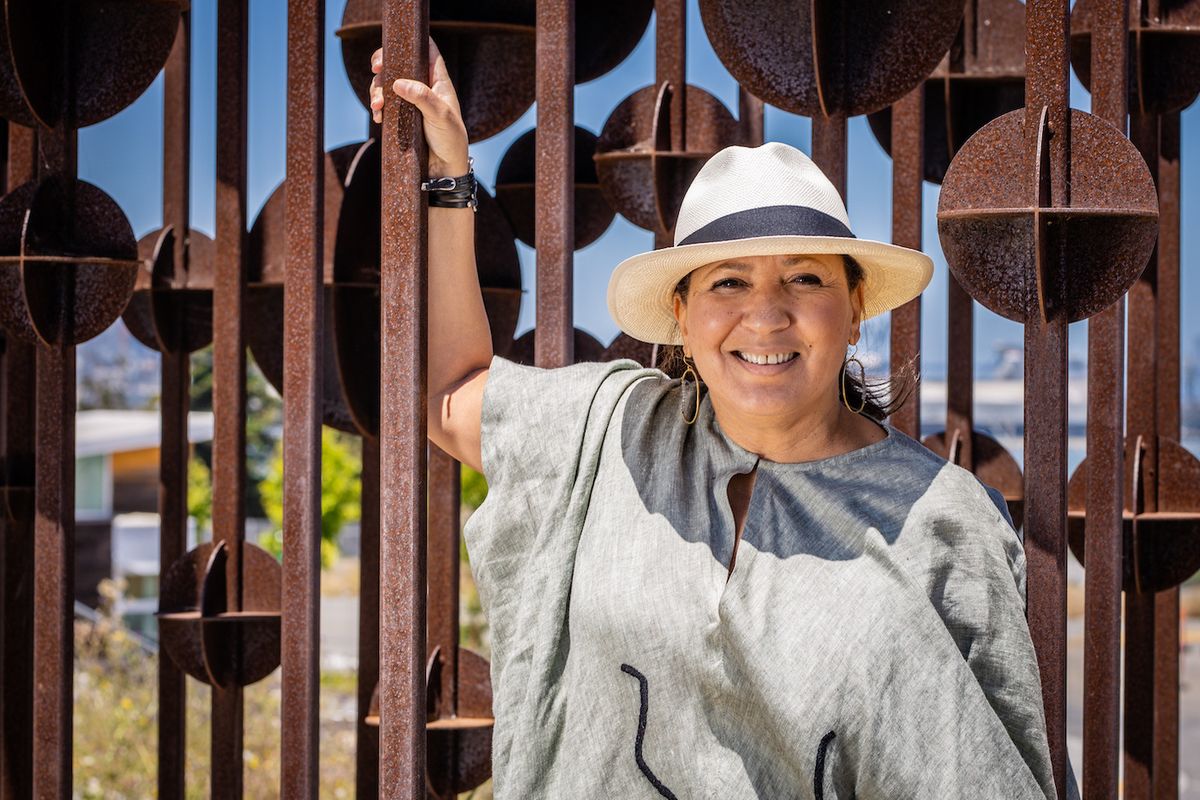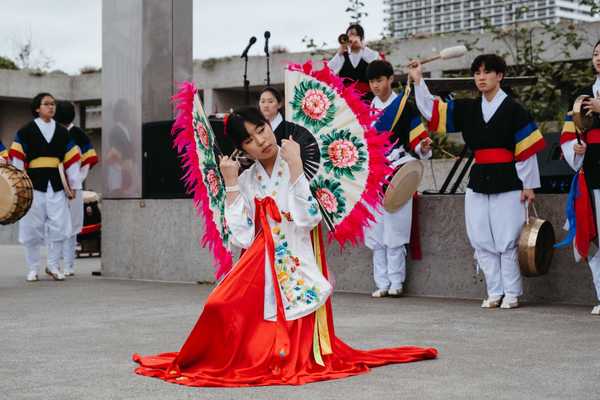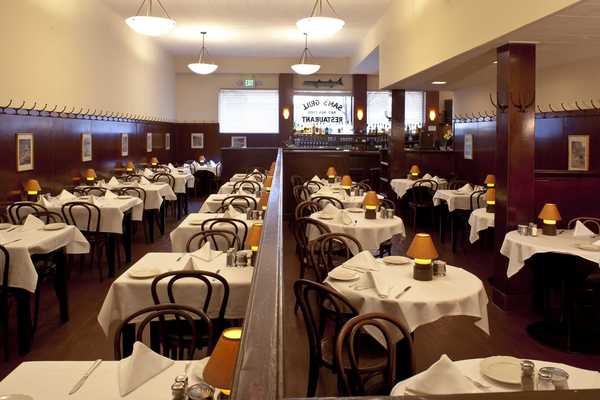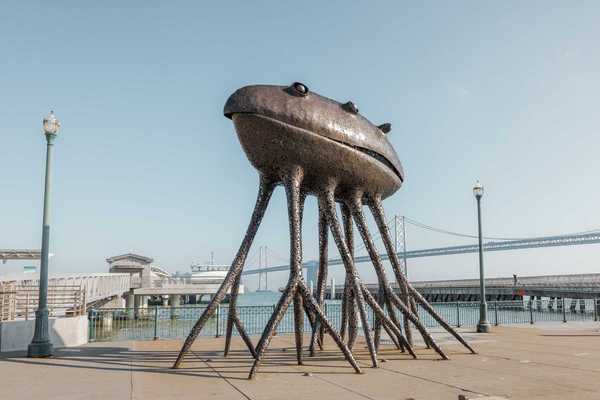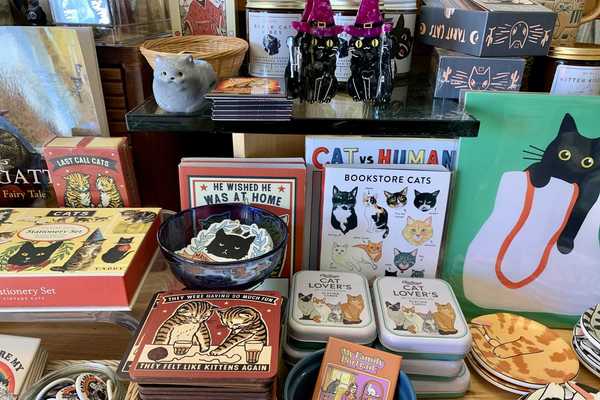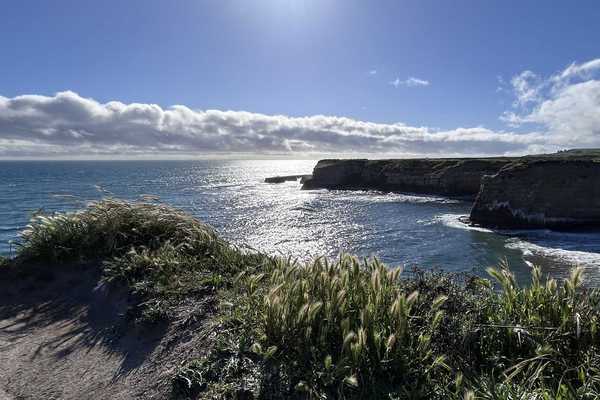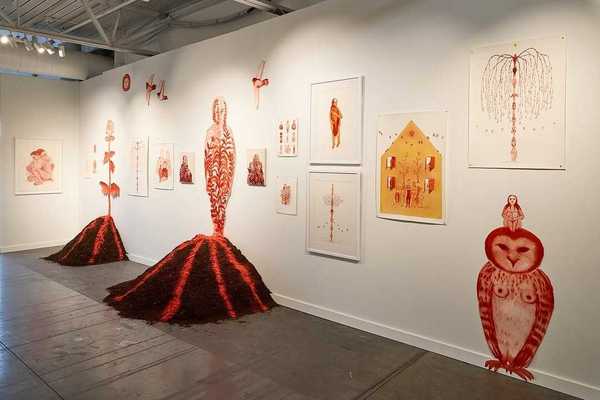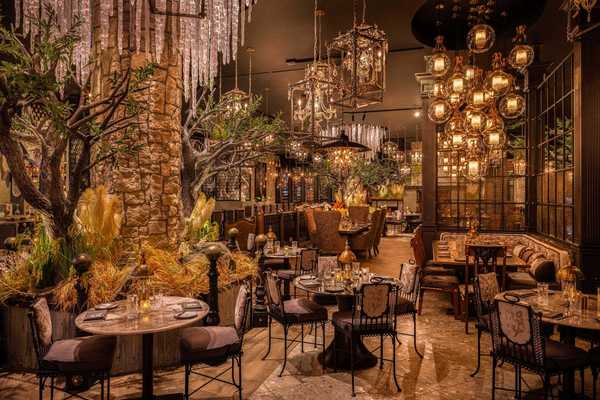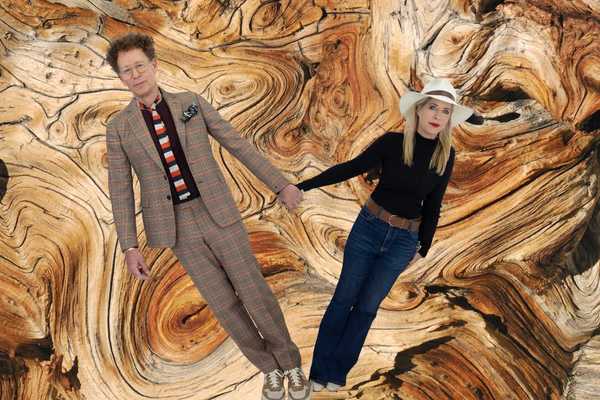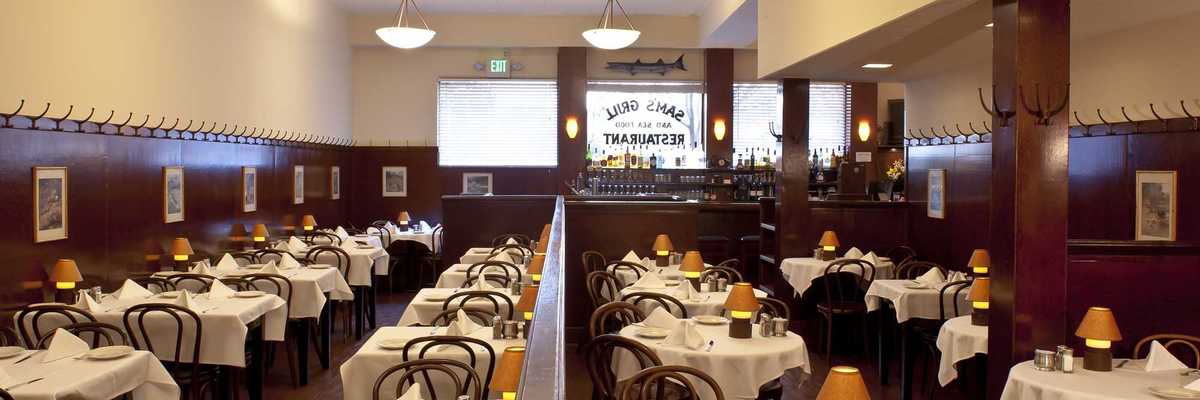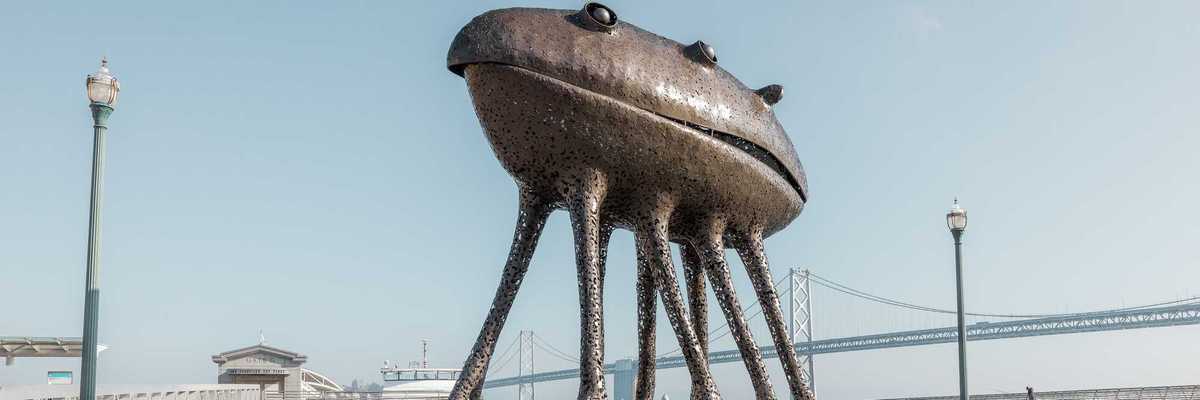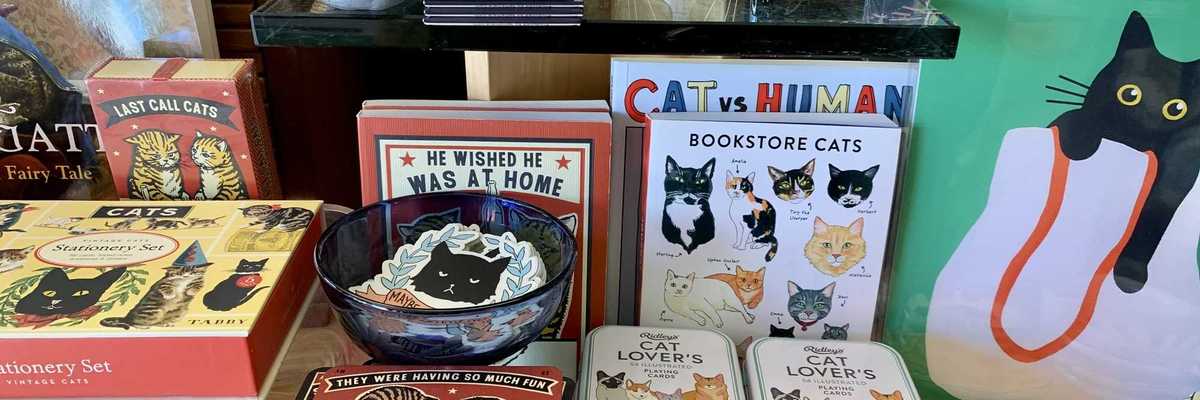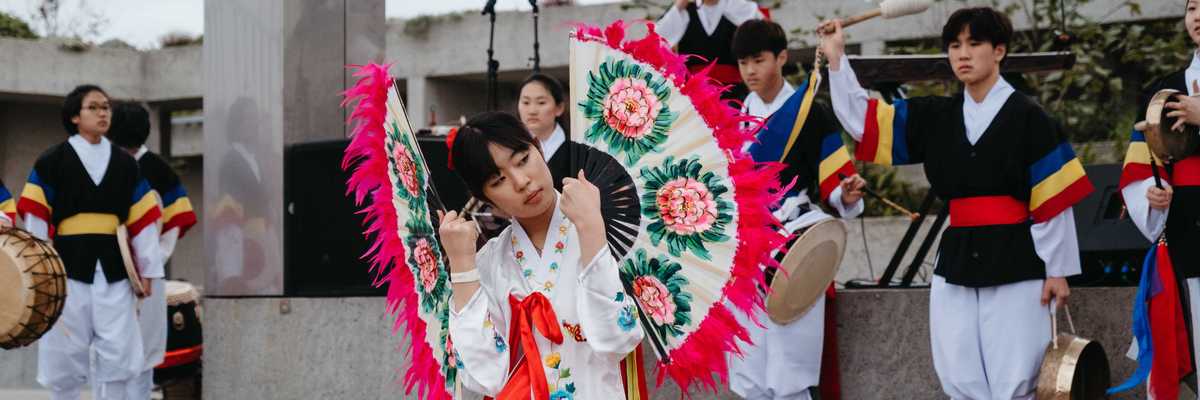As World War II raged in Europe and the Pacific, the flame of African-American culture blazed brightly in San Francisco's Fillmore District. At night the streets vibrated with jazz and R&B and for two decades, anyone who was anyone in Black entertainment—Ella Fitzgerald, Sammy Davis Jr., Duke Ellington, Lena Horne, Josephine Baker, Louis Armstrong—came to play in the Harlem of the West.
Half a century later, almost nothing remained. At Fillmore and Eddy, where Black nightclubs and eateries and shops once stood, memories of the city's Black Renaissance had been paved over by a parking lot.
Monetta White, a native San Franciscan, lived in the Fillmore as a young girl. In the mid-2000s, she and chef-husband David Lawrence returned to the neighborhood with a dream: to recapture some of the Black legacy lost through years of city development and gentrification. Breaking through the parking lot's blacktop, they built their North-meets-South supper club, 1300 on Fillmore, from the ground up. It opened its doors in 2007.
The restaurant wasn't White's first brush with revitalizing African-American culture in SF. Two years before she and Lawrence completed their restaurant, SoMa welcomed a new museum celebrating Black art, history, and thought: the Museum of the African Diaspora (MoAD). Almost immediately, White stepped up to help.
Her first fundraising effort for MoAD brought in more than $15,000 in donations. By the time she was named the museum's interim director in 2019, White had helped to raise more than $3.5 million.
It wasn't just Monetta White's fundraising skills that landed her at the head of MoAD. With a background in event production, sales, and marketing and a long-demonstrated love and dedication to the museum's mission, she was a natural fit to run the institution as far as MoAD's board of directors was concerned. White herself, though, wasn't so sure. "I'm not gonna lie, I was terrified," she recalls, laughing. But after three-and-a-half months serving as the interim executive director, everyone, even White, was convinced. On December 3rd, 2019, she accepted the position permanently.
In those first days and weeks, "all I kept thinking to myself was 'oh my God, I'm going to love this job,'" she says. She relished the opportunity to engage with creativity and artistic expression and was moved by MoAD's exhibitions, each of which was a stunning contribution to the global conversation around Blackness.
Last fall's Africa State of Mind, for example, was one of her favorites. With 15 photographers from 11 countries, the exhibit explored the contradictions and dynamic nature of African identity through imaginative portraits showcasing urban landscapes, fashion, and culture. In this winter's Black Is Beautiful, photographs captured by Harlem Renaissance photographer Kwame Brathwaite challenged mainstream beauty standards that marginalized dark skin, natural hair, and African heritage. "It was just a powerful exhibition," White recalls.
With MoAD's 15th anniversary looming this December, celebration plans were already afoot when, in a story that has become all too familiar, the pandemic ground the museum's in-person operations to a halt. But while the institution was forced to put a series of events on hold, including its annual Afropolitan Ball, MoAD has also proven to be more nimble than even White had previously recognized.
Over the last months, MoAD has pivoted to an online platform that, in some ways, has allowed the museum to do more to connect with the African Diaspora than ever before. Taking its biweekly open mic night virtual has inspired participation from people as far away as London and South Africa, and a global audience is now tuning in to their In the Artist's Studio series, which showcases African-American talents like Jefferson Pinder and Barbara Earl Thomas.
When weeks of protests and the first steps towards racial reckoning erupted following the murder of George Floyd on May 25th, MoAD used its online presence to amplify the voices of Black entrepreneurs, artists, and writers in the ongoing online series Conversations Across the Diaspora and Community Resilience. Many of the museum's recent and upcoming events are available on their YouTube channel.
"This moment is something that has been a long time coming and our museum has been dedicated to the core spirit of this movement since its inception," explains White. "I'm just super excited to see how we have opened up from this museum that sits on Third and Mission to the world."
In San Francisco itself, where the African-American community has been hit especially hard by the displacement that shadows skyrocketing gentrification, MoAD has played—and will continue to play—an essential role in promoting Black culture, art, and equity. "San Francisco needs MoAD," says White. "It's one of the last places in the city where African-American community members can go to engage with Black culture and thought."
If anything, the Black Lives Matter Movement has helped to magnify MoAD's work. "As a small staff, we are doing our best to amplify the voices of those Black artists, curators, Black creators, Black lives," says White. MoAD "is more important now than ever, not only for San Francisco but for the country."
// Memberships to the Museum of the African Diaspora are available at moadsf.org; follow on Instagram at @moadsf.



